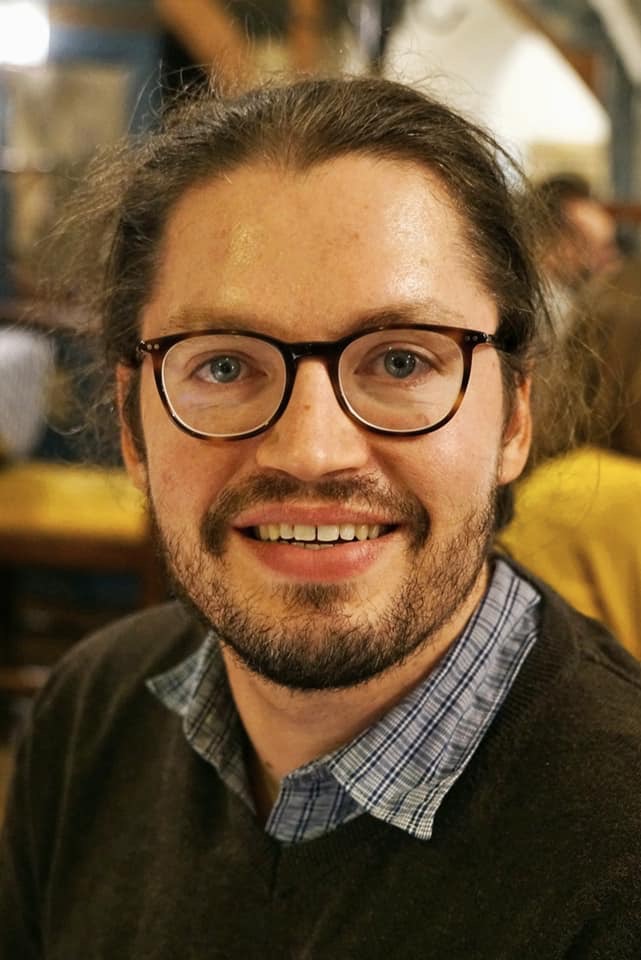Programme
Keynote speaker
 |
Johannes K. Fichte Database and Artificial Intelligence Group, Institute of Information Systems, TU Vienna, Austria Keynote title: Model Counting, its Relationship to Symbolic Quantitative AI, and a Glimpse into Practical Solving Keynote abstract: Model counting (#SAT) asks to compute the number of satisfying assignments for a propositional formula. The decision version (SAT) received widespread interest in computational complexity, formed many applications in modern combinatorial problem solving, and can be solved effectively for millions of variables on structured instances. #SAT is much harder than SAT and requires more elaborate solving techniques. In this talk, we revisit the problem, its complexity, and explain applications in symbolic quantitative AI, including its relation to Bayesian inference. We briefly overview solving techniques and explain a parameterized algorithm and implementation to tackle the problem. While purely parameterized approaches from theory often suffer practical limitations, we illustrate that a parameterized algorithm can be successful when combining it with modern hardware that takes advantage of parallelism. |
Accepted papers
- Martin Caminada and Sri Harikrishnan: Strong Admissibility, a Tractable Algorithmic Approach
- Martin Diller, Sarah Alice Gaggl and Piotr Gorczyca: Strategies in Flexible Dispute Derivations for Assumption-Based Argumentation
- Sylvie Doutre and Marie-Christine Lagasquie-Schiex: Computing the Labellings of Higher-Order Abstract Argumentation Frameworks
- Wolfgang Dvořák, Matthias König and Stefan Woltran: Deletion-Backdoors for Argumentation Frameworks with Collective Attacks
- Lukas Kinder, Matthias Thimm and Bart Verheij: A Labeling Based Backtracking Solver for Abstract Argumentation
- Kenneth Skiba, Matthias Thimm, Tjitze Rienstra, Jesse Heyninck and Gabriele Kern-Isberner: Realisability of Rankings-based Semantics
- Kazuko Takahashi: Odd or Even: Handling N-lemmas in a Dynamic Argumentation Framework
- Hao Wu, Bruno Yun and Nir Oren Improving Reasoning Efficiency in ASPIC+ with Backwards Chaining and Partial Arguments
- Andreas Xydis, Christopher Hampson, Sanjay Modgil and Elizabeth Black: A sound and complete dialogue system for handling misunderstandings
The proceedings of SAFA2022 are available at http://ceur-ws.org/Vol-3236/.
Detailed programme
| 08:45-09:00 | Welcome |
| 09:00-10:00 | Keynote: Johannes K. Fichte - Model Counting, its Relationship to Symbolic Quantitative AI, and a Glimpse into Practical Solving |
| 10:00-10:30 | Kenneth Skiba, Matthias Thimm, Tjitze Rienstra, Jesse Heyninck and Gabriele Kern-Isberner: Realisability of Rankings-based Semantics |
| 10:30-11:00 | Coffee break |
| 11:00-11:30 | Andreas Xydis, Christopher Hampson, Sanjay Modgil and Elizabeth Black: A sound and complete dialogue system for handling misunderstandings |
| 11:30-12:00 | Martin Diller, Sarah Alice Gaggl and Piotr Gorczyca: Strategies in Flexible Dispute Derivations for Assumption-Based Argumentation |
| 12:00-12:30 | Hao Wu, Bruno Yun and Nir Oren Improving Reasoning Efficiency in ASPIC+ with Backwards Chaining and Partial Arguments |
| 12:30-12:45 | Presentation of the Fifth International Competition on Computational Models of Argumentation (ICCMA'23) |
| 12:45-14:00 | Lunch break |
| 14:00-14:30 | Kazuko Takahashi: Odd or Even: Handling N-lemmas in a Dynamic Argumentation Framework |
| 14:30-15:00 | Sylvie Doutre and Marie-Christine Lagasquie-Schiex: Computing the Labellings of Higher-Order Abstract Argumentation Frameworks (virtual presentation) |
| 15:00-15:30 | Lukas Kinder, Matthias Thimm and Bart Verheij: A Labeling Based Backtracking Solver for Abstract Argumentation |
| 15:30-16:10 | Coffee break |
| 16:10-16:40 | Martin Caminada and Sri Harikrishnan: Strong Admissibility, a Tractable Algorithmic Approach |
| 16:40-17:10 | Wolfgang Dvořák, Matthias König and Stefan Woltran: Deletion-Backdoors for Argumentation Frameworks with Collective Attacks |
| 17:10-17:15 | Closing |